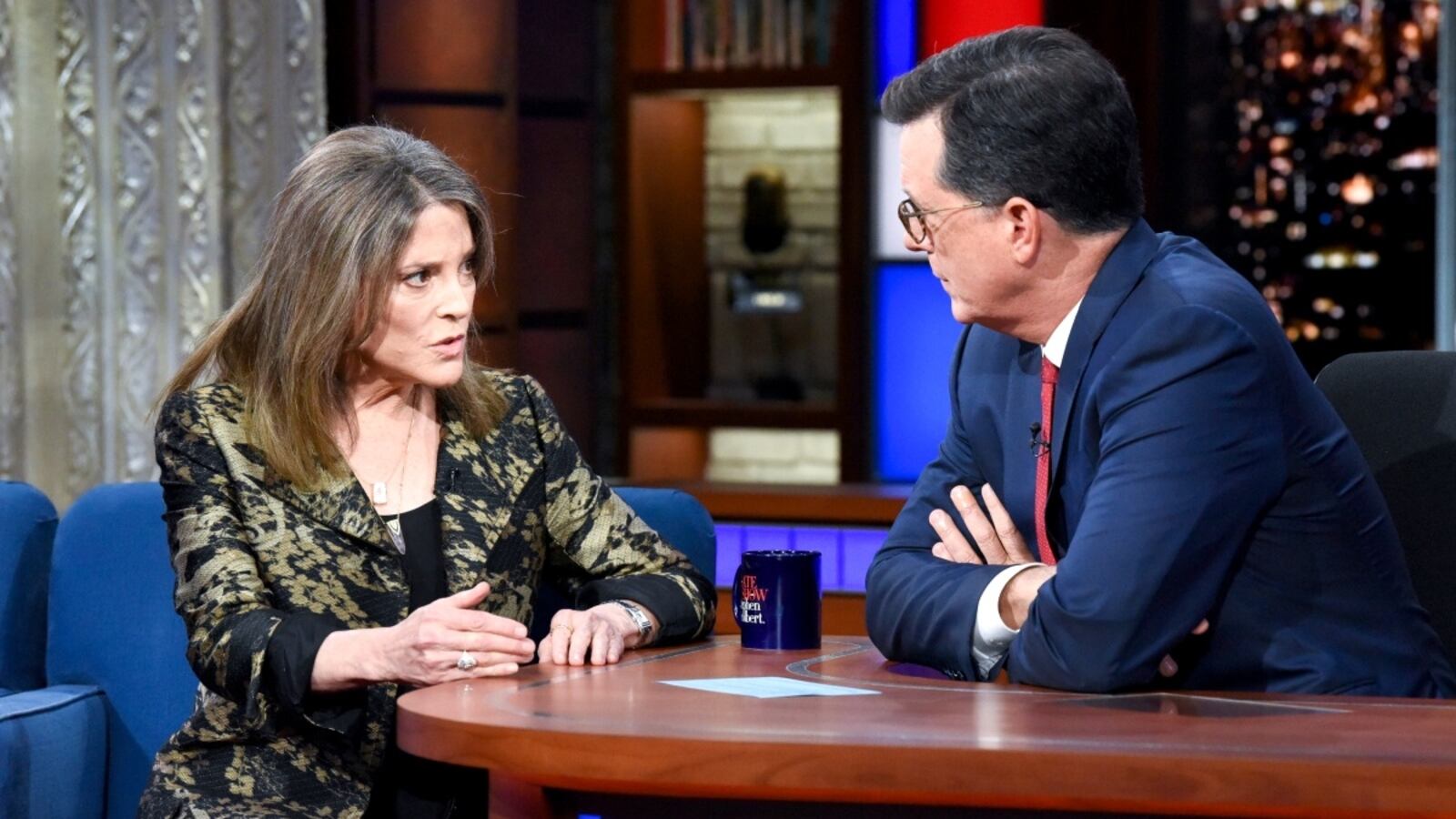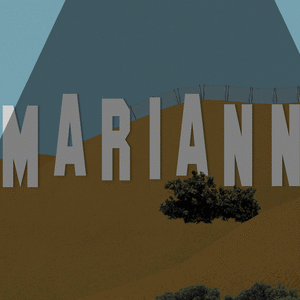On Monday night, comedian Stephen Colbert welcomed Marianne Williamson, the “spiritual guru” turned 2020 Democratic presidential candidate, to his late-night program.
After reading off her list of accomplishments, which includes activism work and a series of bestselling self-help books, Colbert asked Williamson what sets her apart from the rest of the packed Dem field.
“I want to be an agent of change,” offered Williamson, who was there to promote her new book, A Politics of Love.
“Now, love is not always associated with the presidency… would you be able to order other people to go kill our enemies?” asked Colbert—a question that seemed mildly sexist when posed to a woman candidate.
“Absolutely,” Williamson replied. “I think that when you take an oath of office of the president of the United States, part of that oath means that you are commander-in-chief, absolutely. But if you’re going to talk about peace, you can’t just back up into peace.”
Then, well, Colbert served up a few softball questions, asking her “what it’s like to be up on the stage with those nine other people” and whether she feels “marginalized” (Williamson blamed the “political media-industrial complex” for why she’s considered a left-field candidate).
The host then compared her to President Trump, saying, “We have someone who is a businessman with no political experience in office now. That makes someone who is from what we would think of as kind of the normative political track that we’ve seen in American history very appealing. That might be one of the reasons why Joe Biden is so appealing.”
“This might be the case where what you would consider the ‘safe’ choice is the most dangerous thing we could possibly do,” said Williamson. “The president’s problem is not that he lacked political experience, it’s that he lacked ethics—and he seems to lack a visceral taste for democracy. I don’t like this idea, you said I lack political experience?
“There’s this almost Wizard of Oz idea that—this idea of this political class and something’s going on behind the curtain and they know what to do in the ways that the rest of us don’t. I think when we think of political qualifications today, we should expand our sense of what those qualifications are,” she continued. “A political qualification today should include political vision; it should include moral certitude; it should include the capacity to move groups of people—large groups of people—toward a common goal, a common vision, a common democracy, a love for our world and a love for our planet.” (It’s rather unclear what Williamson’s “political vision” is.)
She added, “A lot of experienced politicians led us into Iraq. And anybody who says that I’m an amateur at what they do? I’m sorry, Stephen, they’re an amateur at what I can do.”
“Nicely said,” Colbert responded.
All in all, it was a disappointing performance from Colbert, who failed to challenge Williamson on any of her controversial anti-science views—from her anti-vaxx stance (she’s referred to vaccine mandates as “Orwellian” and “draconian” and compared vaccines to “the abortion debate”), to how she’s questioned the validity of depression, to how she believes obesity can apparently be triumphed over by “surrendering your weight to God.”
Or, you know, this gem:
And of course, Hollywood is on board. Colbert, on the other hand, should know better.








